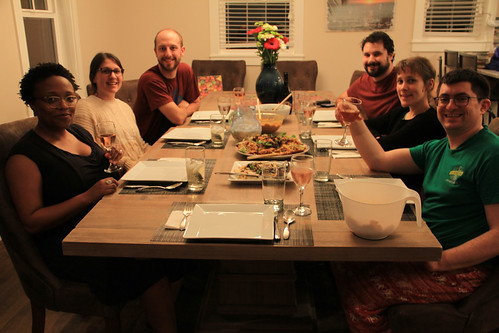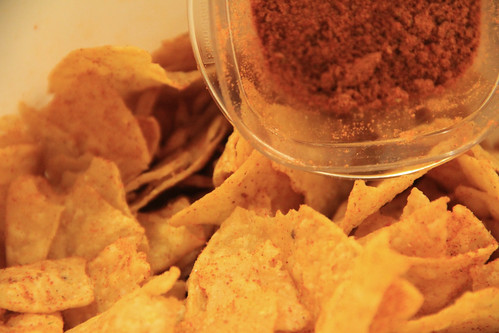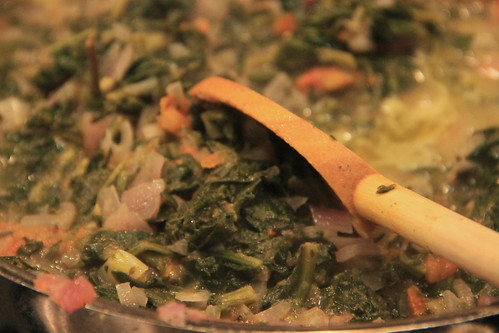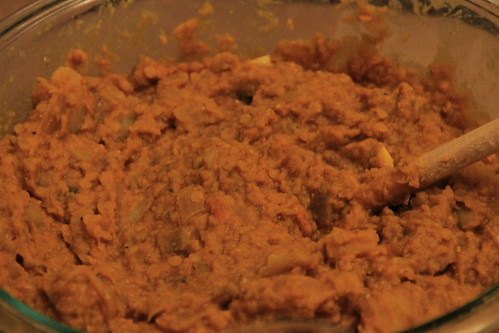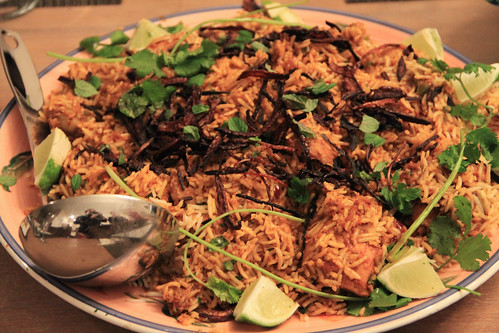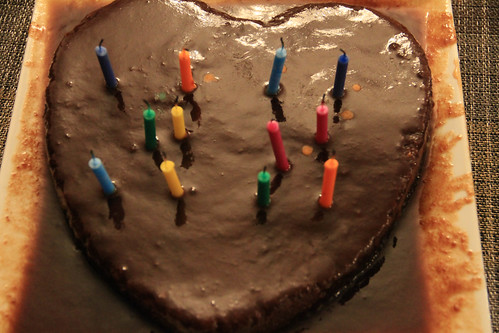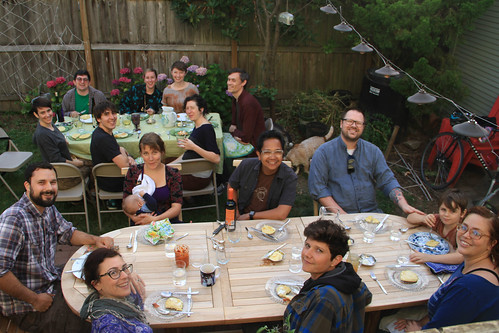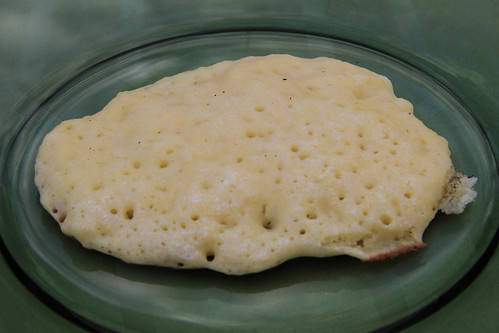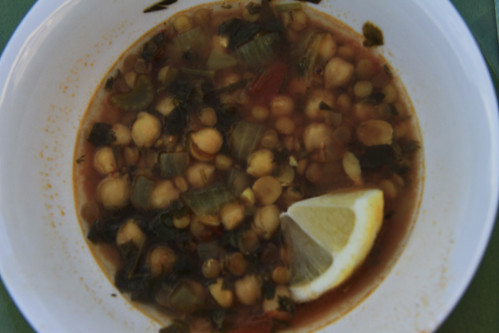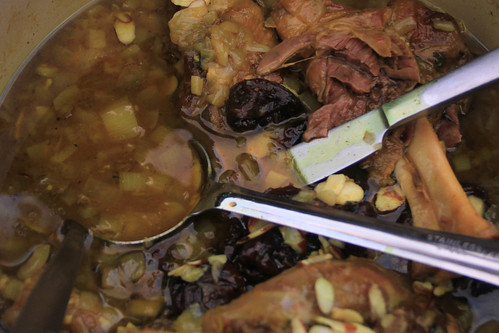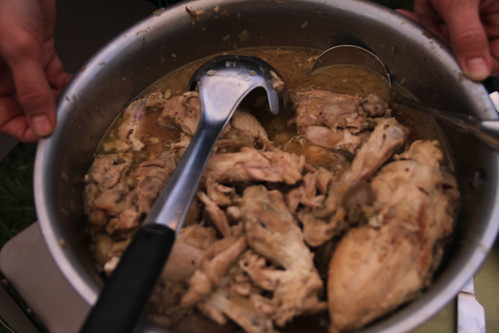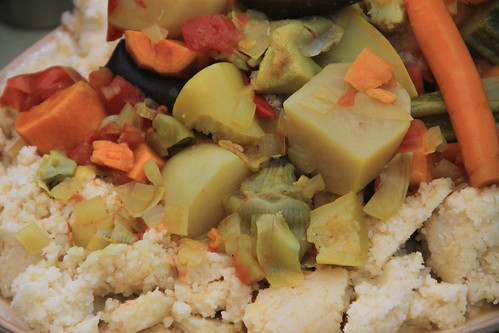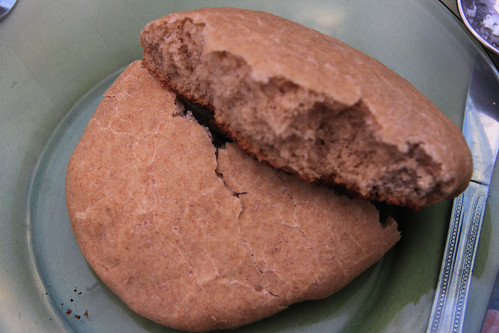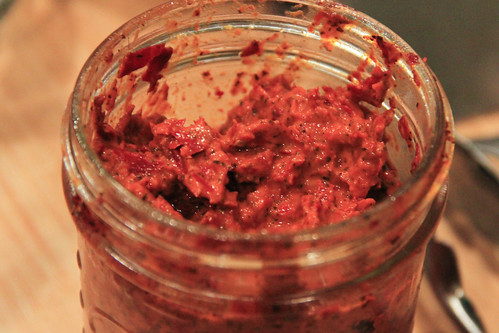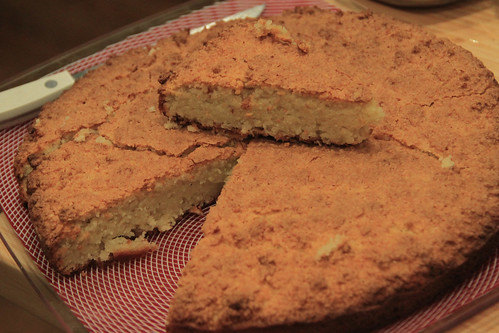Palestine isn’t a full UN member, but has been a “non-member observer state” since 2012, which is good enough for us. Politics aside, Palestinian food is distinctive in its own right. Particularly notably for a region where much of what’s eaten is characterized by regional variations on a theme — note how it’s common to refer to a restaurant as “Middle Eastern” — the West Bank claims a distinctive dish as the core of their culinary corpus, a layered dish of bread, oily onions, chicken and sumac called musakhan.
While the food of the West Bank gets the lion’s share of attention among those looking, there’s an argument to be made that the million-plus people of the Gaza Strip have perhaps even more to distinguish their style of cooking, particularly with their particular use of spices. Online information on Gazan food is very slim, but fortunately the library had the one book I found that’s focused on it.
Unfortunately, by trying to cook two cuisines at once, I made about one dish too many and the attention to detail suffered, in particular with the grape leaves and the upside-down rice. I think if we’d skipped the labor-intensive flatbread and instead stuck to store-bought pita, we’d have had a better meal even with the slight decline in bread quality.
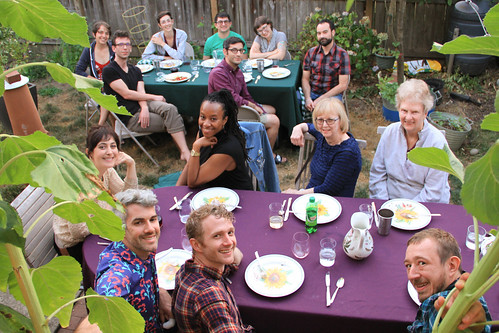
Our guests for this culinary expedition to the holy land, on a fine summer evening, were Dita, Levi, Julie Mary, Kalah, Justin, Melia, Mike, Marty, Alley, Tim, Conor, and Chelsea.
Salata arabiya | Arabic salad | Recipe
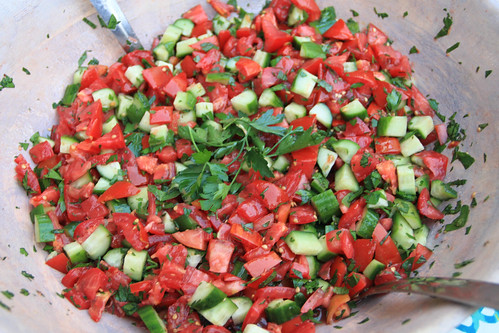
This salad is hardly unique to Palestine, but it’s super common and delicious. You hardly need a recipe: chop up tomatoes and cucumbers and parsley, throw on some lemon juice and olive oil and salt, toss and serve. (For excitement, add onion and/or mint.) As we were in the height of summer, the tomatoes were juicy, the cucumber crisp, the flavors alive.
Duqqa | Grain and spice blend | Recipe
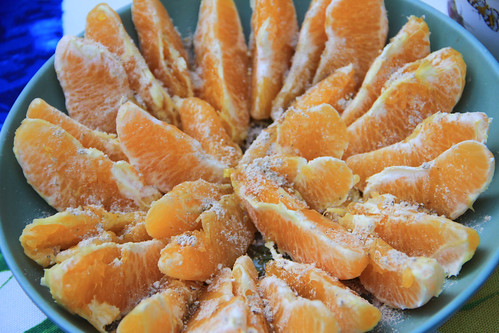
From the Western culinary perspective, duqqa has come on the scene like a latter-day zaatar, a more complex spice blend that adds complex base tones from the spices, and a toastiness from nuts. But that’s the Egyptian version. This Gazan duqqa is more than simply a seasoning, it’s actually mostly roasted grain and legume by volume, intended in large part as a way to add substance to olive oil when you dip your bread. Or, in this case, to oranges.
I love the concept, but wasn’t thrilled with our execution. As the recipe notes, you can use all sorts of spices in various permutations, perhaps I hit the wrong blend. I also can’t decide if I like the texture and bulk from the non-spice parts, or if they got in the way. But I can’t deny that orange segments are a fantastic vehicle for spices!
Waraq inab | Stuffed grape leaves
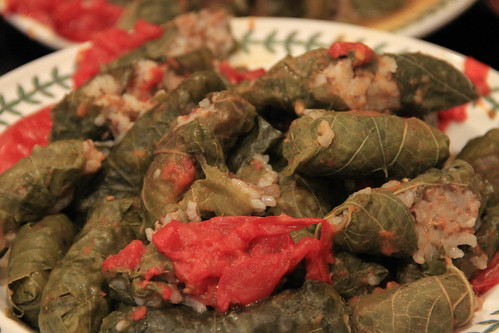
Grape leaves are stuffed all over this region, and while you can find them preserved in brine in a jar, we had the good fortune of an abundant grape vine spilling over from the neighbor. The leaves were just on the tail end of proper tenderness about two weeks before the meal, so I picked, blanched, and froze them at that time to keep them at their best.
I decided to try to follow a Gazan recipe with flavors like allspice. Kalah and Justin spent a good long time carefully filling and rolling each leaf with the mixture of rice and ground beef and whatnot, and it took a good long time to simmer. Then we were disappointed by two major factors: the filling was bland and underspiced, and our diligent laborers are vegetarian! I think in my haste I forgot to double the spices while doubling the recipe.
Musakhan | Sumac-roasted chicken with oil-poached onions on bread | Recipe
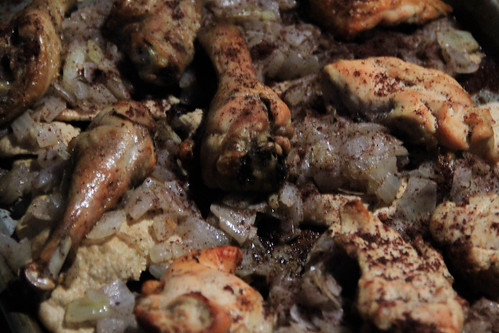
A few ingredients, a ton of olive oil, a bunch of steps, and it’s all worth it. The chicken part is easy, just get it cooked somehow. The onion part is like nothing I’ve ever seen, you cover chopped onions entirely with olive oil and then cook gently, so brown but get super soft rather than crispy. And the sumac with a hint of cardamom makes it feel like you’re in the right part of the world. It’s a bit of a to-do to assemble it just in time for eating, with a two-step bake, so keep that in mind when pacing out the meal.
If you chafe at using a few cups of oil for this dish, keep in mind that you don’t come close to eating it all (thank goodness), and you can reserve the remaining onion-scented oil in the fridge for several months. Keep it in a wide-mouthed jar because it’ll become semi-solid and you’ll need to spoon it out, and use for just about any sautéeing. You’re welcome.
Maqluba | Upside-down rice and eggplant casserole | Recipe
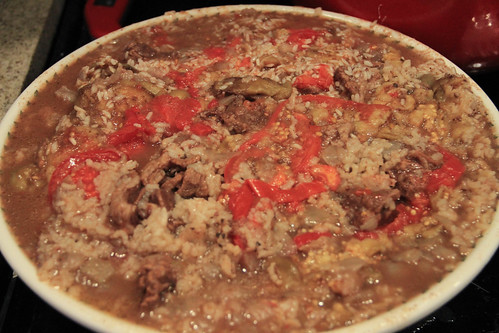
If you’ve ever seen a properly executed maqluba, you’ll be aghast at this soupy mess in a bowl. I must have gotten the liquid ratio wrong, because I was aiming for something that in the best case emerges as a cake-shaped masterpiece, or at least something mostly solid with some chunks of rice crumbling off. I at least got it true to its name, though: because the veggies were on the bottom of the pan, upon inversion they ended up on top, and maqluba means upside-down.
Knafeh | Syrup-soaked cheese-filled sheet pastry | Recipe
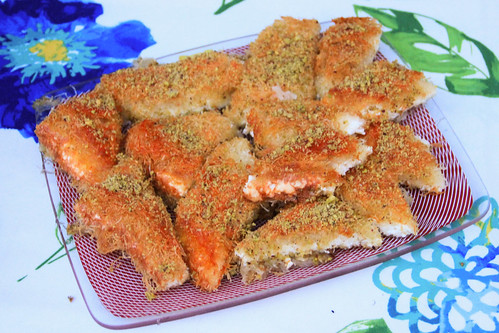
None of our guests reported any adverse affects, so we can confess the story of why we didn’t have enough of this really tasty dessert.
First, to explain what it is, it’s like a baklava but instead of flat filo dough you have a similar pastry called kataifa that’s shredded, and instead of a sweet walnut filling you have a bland, kinda squeaky cheese that’s sweetened up. Upon baking, the kataifa crisps up, the cheese softens, and like a baklava, after cooling it’s doused in a warm scented syrup and then topped with finely ground nuts. Then it’s cut into diamonds, and left to sit and cool.
After the main course, Laura asked me if I’d already plated the dessert, which I’d left to cool in the living room while we dined outside. I hadn’t, so I walked in to see why she’d asked. Half of the tray was missing! Then we remembered that just a few minutes ago we’d been wondering why our mutt Reba was so gleefully rolling around in the grass…
We swore the other guests who were inside to secrecy, put one modest piece on each plate — thankfully we had just enough — and meekly apologized when guests asked for seconds. Which they did, because it was so tasty
